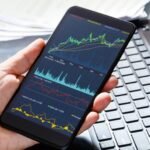Understanding your company culture isn’t just about employee surveys or office atmosphere. Sometimes, the best insights lie in unexpected places—like the data collected by your vehicle tracking systems. This information doesn’t just tell you where your vehicles are; it can also reveal much about your organisation’s values, priorities, and overall work environment.
So, what is your vehicle tracking data really saying? Let’s explore how this resource uncovers the hidden aspects of your business culture.
Efficiency or Pressure?
One of the first things vehicle tracking data highlights is how efficiently your operations run. Are delivery times consistently on target, or do routes show frequent delays? While efficiency is a sign of streamlined processes, excessive speeding or overly tight schedules might point to a culture of pressure and unrealistic expectations.
Consider the well-being of your drivers. High-stress environments often lead to burnout, increased turnover, or even accidents. Analysing trends such as frequent reroutes or extended shifts can help you determine if your systems support productivity without compromising employee welfare.
Accountability or Micromanagement?
Vehicle GPS tracking systems are excellent tools for accountability, but there’s a fine line between fostering responsibility and creating an environment of distrust. If your tracking data is used to monitor every minor move, employees may feel micromanaged, which can harm morale and motivation.
However, when used constructively, this technology promotes transparency. For instance, resolving disputes about delivery timings or responding quickly to emergencies becomes easier. The way you implement and act on this data reflects whether your organisation values collaboration or leans towards control.
Sustainability or Overuse?
Your vehicle tracking data can also provide insights into your company’s environmental practices. Are routes optimised to reduce fuel consumption, or are vehicles clocking excessive mileage due to inefficient planning? Sustainable operations show your company’s commitment to reducing its carbon footprint, a value increasingly important to employees and customers alike.
Conversely, frequent vehicle use or neglecting to maintain them could indicate a lack of prioritisation for long-term impact, affecting both your budget and your team’s perception of the company’s forward-thinking values.
Adaptability or Resistance to Change?
Tracking data often exposes how quickly your business adapts to challenges. For example, when faced with a sudden route disruption, does your system enable seamless rerouting, or do delays mount due to outdated processes? Adaptability shows flexibility and innovation within your culture.
Investing in vehicle GPS tracking systems reflects a proactive approach to improving operations and embracing technology. The results you achieve, however, depend on whether your company integrates these tools as part of an adaptable, growth-oriented strategy or merely as a box-ticking exercise.
A Reflection of Leadership
Ultimately, your vehicle tracking data speaks volumes about leadership. Decisions on how to use this data—whether to optimise safety, improve communication, or simply cut costs—are a direct reflection of management priorities.
Employees often mirror leadership values, and if your data suggests an emphasis on safety, fairness, and sustainability, it reinforces a positive company culture. Conversely, if it indicates overwork, inefficiency, or resistance to employee feedback, it might be time for leadership to reassess its approach.
A Clearer Picture, A Better Path Forward
Vehicle tracking systems aren’t just about monitoring logistics; they provide a unique window into the soul of your organisation. By analysing this data thoughtfully, you gain insights that go far beyond operations, revealing the true essence of your company culture.
Your tracking data is already telling a story. The real question is: are you listening to it, and more importantly, are you ready to act on what it reveals?









